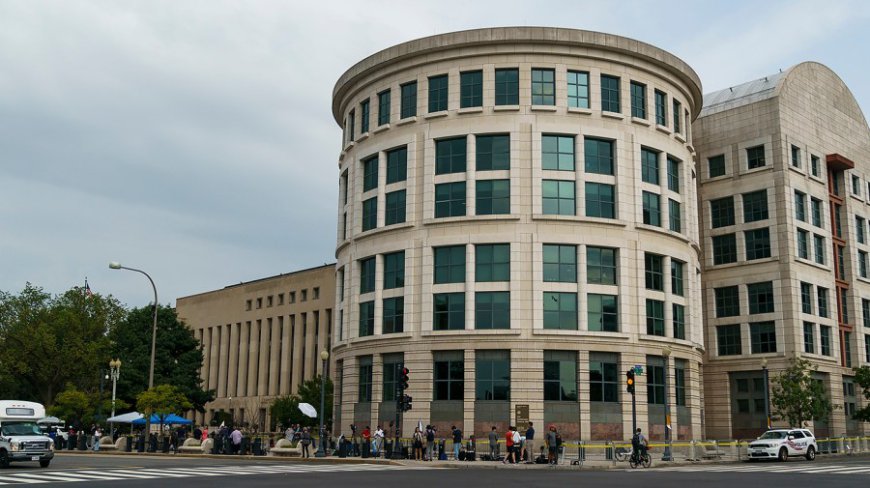‘Forum shopping’ for desired legal results is a bipartisan problem
Of the 130 major rules challenged under the Biden administration, a whopping 16 percent were challenged before just two jurists.

Last month, the Supreme Court limited the ability of federal courts to issue universal preliminary injunctions, temporary rulings that prevent the government from enforcing a challenged law or policy against anyone until the litigation is fully resolved. The decision should be viewed in the context of a larger problem that the Supreme Court found concerning and was attempting to address: In recent years, litigants have been able to increase their odds of success by handpicking the forums — and sometimes even the judges — for their lawsuits. But the court’s ruling is not the way to solve this problem.
A newly published analysis from NYU School of Law’s Institute for Policy Integrity (we are among the co-authors) examines every legal challenge to a federal “major rule” since 1996, when the Congressional Review Act established the major rules definition. The study reveals that “forum shopping” is indeed playing an increasingly large role in the fate of major federal policies. And it is a problem that has vexed presidents of both parties.
The trend reached its apex during the Biden administration. The study finds that 40 percent of the challenges to the government’s major rules were filed in the conservative-leaning Fifth Circuit, the federal courts in Louisiana, Mississippi and Texas. This circuit had never seen more than 10 percent of such challenges in any prior administration. The Biden administration won only 21 percent of these challenges filed in the Fifth Circuit, while it won 68 percent of such challenges filed elsewhere.
Litigants do not always have a choice of forum for their lawsuits. For example, most environmental regulations with nationwide impacts must be challenged in the D.C. Circuit. But many challenges can be brought nearly anywhere in the country. Under former Presidents Bill Clinton and George W. Bush, nearly two-thirds of challenges to major rules were still filed in the D.C Circuit. This fell to half of such cases under former President Barack Obama, and dwindled to just over one-third under President Trump’s first administration. The figure continued to decline under President Biden.
So where are the cases going instead? As the Fifth Circuit example suggests, litigants are shopping for results.
During the first Trump administration, litigants challenging major rules favored the liberal-leaning Second and Ninth Circuits — which are headquartered in New York and California — nearly a third of the time. And the first Trump administration saw imbalanced results in these circuits, too. Its win rate in the Second and Ninth Circuits was 28 percent, compared to 54 percent in all other courts. Excluding these circuits would have increased the Trump administration’s 45 percent overall win rate by 8 percentage points.
While forum shopping is a game that both sides play, the effects are not symmetrical. For example, the Biden administration’s overall win rate in challenges to major rules was 45 percent — effectively the same as the Trump administration’s — but it would have risen to 68 percent if the Fifth Circuit had been excluded. This 23 percentage point difference is significantly larger than the 8 percentage point decrease for the first Trump administration if the Second and Ninth Circuits were excluded.
There is also an increased trend of “judge shopping.” There are over 1,000 federal district court judges. But of the 130 major rules challenged under the Biden administration, a whopping 16 percent were challenged before just two jurists: Judge Matthew Kacsmaryk and Judge Reed O’Connor of the District Court for the Northern District of Texas, both appointed by Republican presidents. By filing in a particular subdivision of the Northern District of Texas, litigants could effectively choose these judges. Similar judge-shopping did not occur in challenges against the first Trump administration, largely because such loopholes do not exist in courts perceived as favorable to challenges to Republican administrations.
It is rational for litigants to play this game. But a system that encourages this kind of behavior — and especially one that produces asymmetrical effects for one side of the political aisle — undermines faith in the fair and even application of law, and thus faith in the judiciary.
There is no perfect answer here. But, as Justice Ketanji Brown Jackson noted in her dissent, changing the rules determining which courts hear disputes may better address some of the policy concerns underlying the Supreme Court’s ruling than limiting universal injunctions.
One solution would be to channel more cases back to the D.C. Circuit, where nearly two-thirds of challenges to major rules used to be filed. Another would be to reduce litigants’ ability to select the forum. For example, some challenges filed in multiple courts are already assigned to one of the courts using a lottery system. Another solution may be to assign challenges to major rules (or some other category of federal actions) randomly to a court across the country, regardless of where they were initially filed.
Eliminating universal injunctions may dampen some of the effects of forum shopping. (We say dampen because the ruling does not prevent courts from striking down a federal regulation entirely or providing class-wide relief.) Different courts will continue to decide issues of nationwide import differently, and litigants will continue shopping for results. And the Supreme Court’s partial fix comes with enormous downside, as it removes a critical check on unlawful executive actions.
Whatever the ultimate solution, the status quo is untenable. Extensive forum shopping undermines faith in the judiciary and the rule of law. Ideally, the trends highlighted in the study will prompt scholars, practitioners and lawmakers to give this question serious thought, and identify bipartisan reforms that still ensure meaningful ways to challenge unlawful executive actions.
Don Goodson is the executive director of the Institute for Policy Integrity at NYU School of Law, where Bridget Pals is an attorney.
What's Your Reaction?























